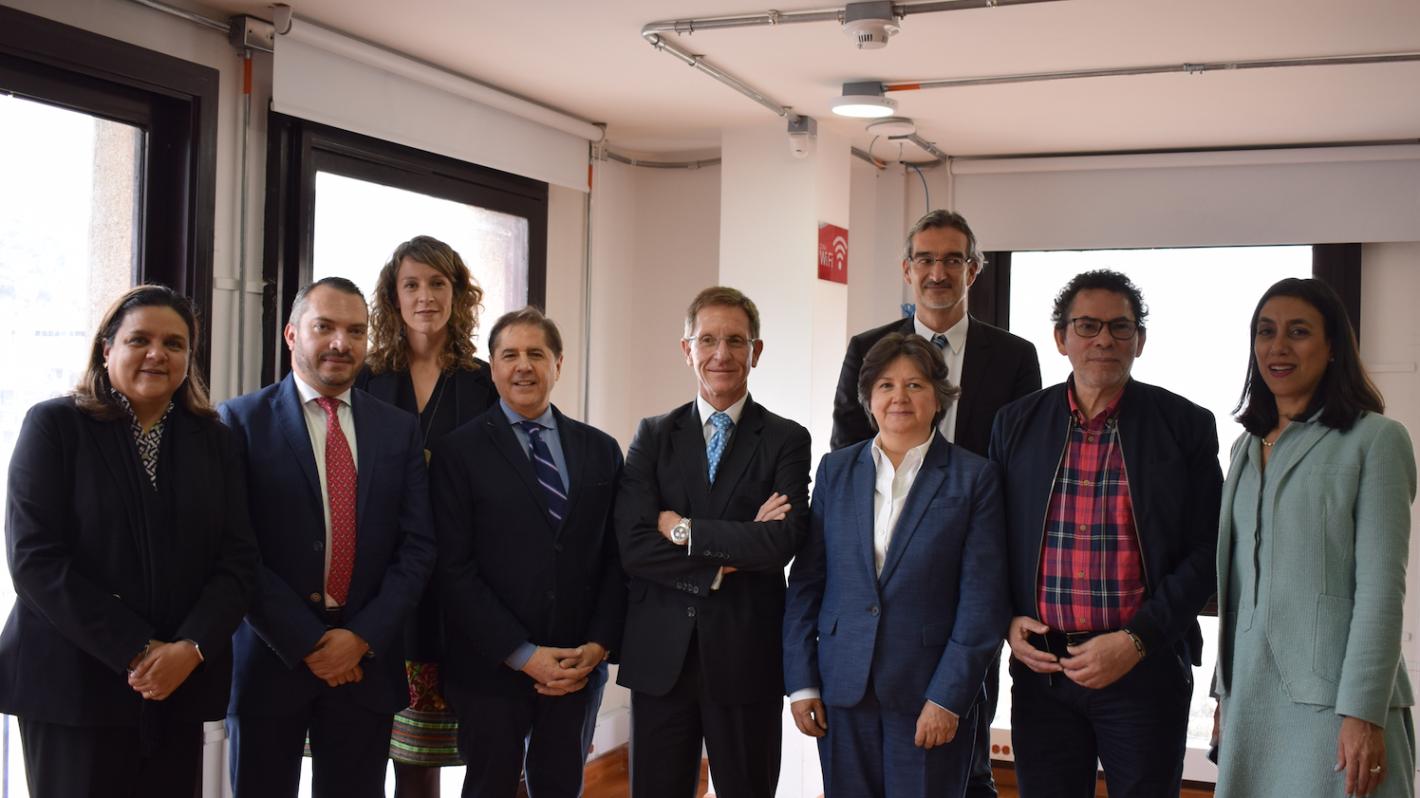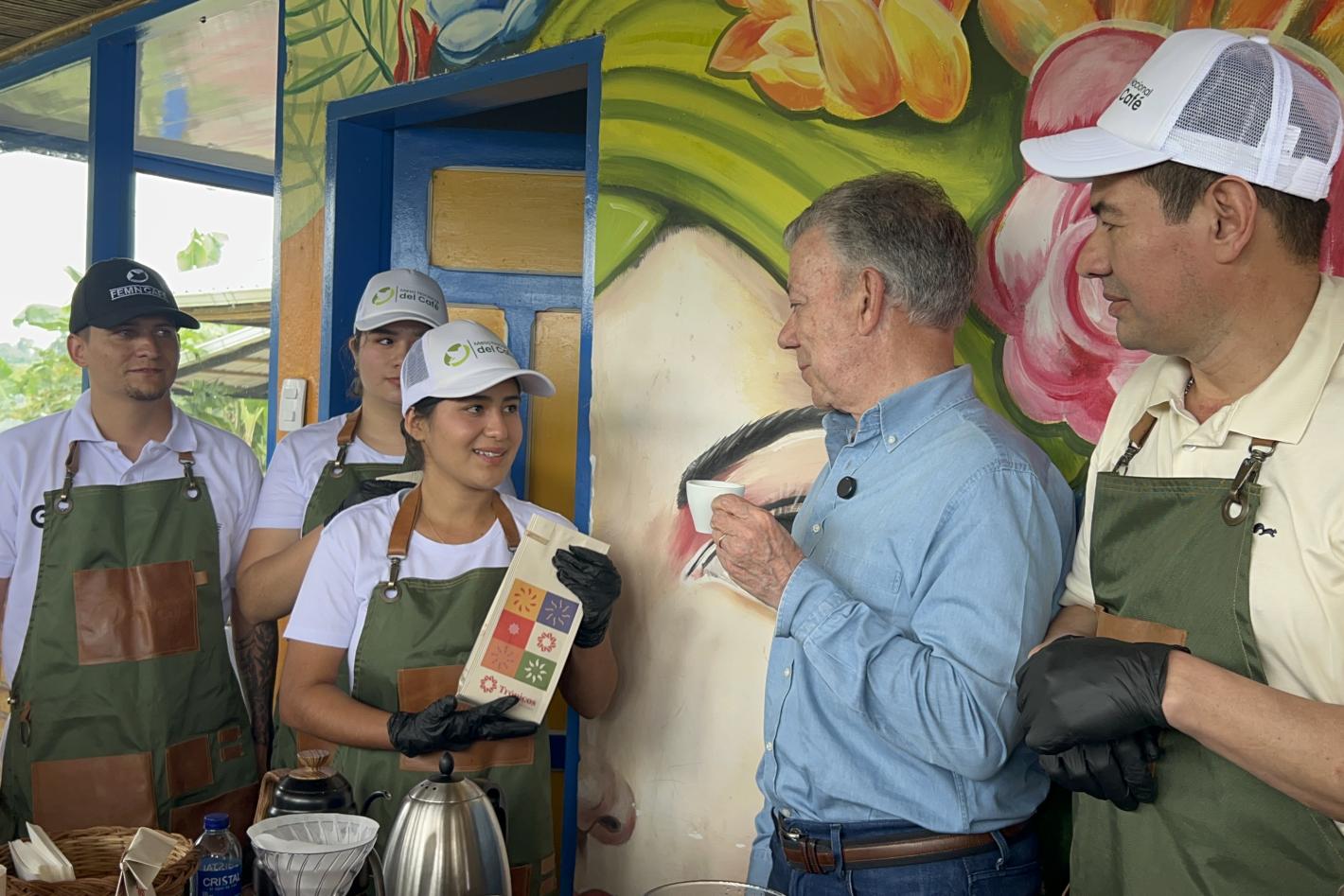- The Government of Colombia, the UN and FARC presented the objectives and components of a jointly designed comprehensive reintegration initiative to be implemented in 15 Territorial Areas for Training Reintegration (TATR) in ten departments.
- Through the Peacebuilding Fund, the UN will invest three million dollars in the reintegration process.
To accelerate social and economic reintegration through productive projects in line with the ‘s stabilization and consolidation policies, nearly three million dollars will be invested to strengthen economic and social initiatives with a territorial, gender and ethnic focus. The project will reach 2,500 people in 15 TATRs and is designed to generate solutions for the care of children and youth, as well as women's economic empowerment.
"It is very important that the reintegration process should go ahead successfully. This is our commitment to support those who are in the legality. Productive projects are fundamental, and the UN is one of the government's main partners in reaching that goal," said Emilio Archila, High Counselor for Stabilization.
The TATRs selected for this project are: La Fila and El Oso (Tolima); Colinas (Guaviare); La Reforma/Cooperativa, Yari/Playa Rica la Y, and Buenavista (Meta); Agua Bonita and Miravalle (Caquetá); Pradera la Carmelita (Putumayo); Pondores (La Guajira); La Plancha and Llano Grande (Antioquia), Philippines (Arauca), Miranda and Patía (Cauca).
"This project is based on tripartite support for the initiatives of former combatants in the TATRs and the need to strengthen them so that they become more viable, more sustainable with a long-term vision, and a social and gender focus," said Jessica Faieta, Deputy Head of the UN Verification Mission in Colombia.
There are currently 120 productive initiatives, including 17 enterprises led by 278 women. From these, a number of initiatives will receive support for inclusion in the value chain and the marketing of their products. It will also be possible to link up with other initiatives in the same territories to benefit 2,083 people in reintegration process.
To provide care to 509 pregnant and nursing mothers, children and adolescents, five of the TATRs identified will receive social investments. This component also provides for the adaptation of existing childcare facilities in order to coordinate action on the ground with the Colombian Institute for Family Welfare in places that are not currently covered by the Institute.
"We have put together a comprehensive reintegration proposal with a socioeconomic vision, partnerships, close coordination with other policies, and a focus on the needs of the communities. In doing so, we are contributing to closing the gaps caused by the conflict in support of national efforts," said Martin Santiago, UN Resident and Humanitarian Coordinator in Colombia.
The goals and approaches followed by the project have been defined with the High Counselor for Stabilization, the Reintegration and Normalization Agency (ARN by its Spanish acronyms) and the People’s Alternative Revolutionary Force (FARC by its Spanish acronym).
The $3 million project is funded by the UN Peacebuilding Fund (PBF). It is viewed as a catalytic initiative to accelerate reintegration as a fundamental commitment to sustaining peace in the country. It will be implemented by the United Nations Development Programme (UNDP), the United Nations entity dedicated to gender equality and the empowerment of women (UN Women) and the United Nations Children's Fund (UNICEF), with the accompaniment of the UN Verification Mission in Colombia.
"This project is an encouragement for former combatants, and a source of hope for the communities near the TATRs. We consider that it comes at a very opportune time taking into account the limitations we have had. For us it has been a help to maintain hope because the communities are the ones that will guarantee the economic and social reintegration process," said Pastor Alape, representative of the FARC in the National Reintegration Council.
The contribution of three million dollars from the Peacebuilding Fund supplements the efforts of the Colombian Government, the United Nations and the UN Multi-donor Fund for Peace Sustainability that has been working on reintegration issues since 2016 with an investment of 11.4 million dollars.
******






